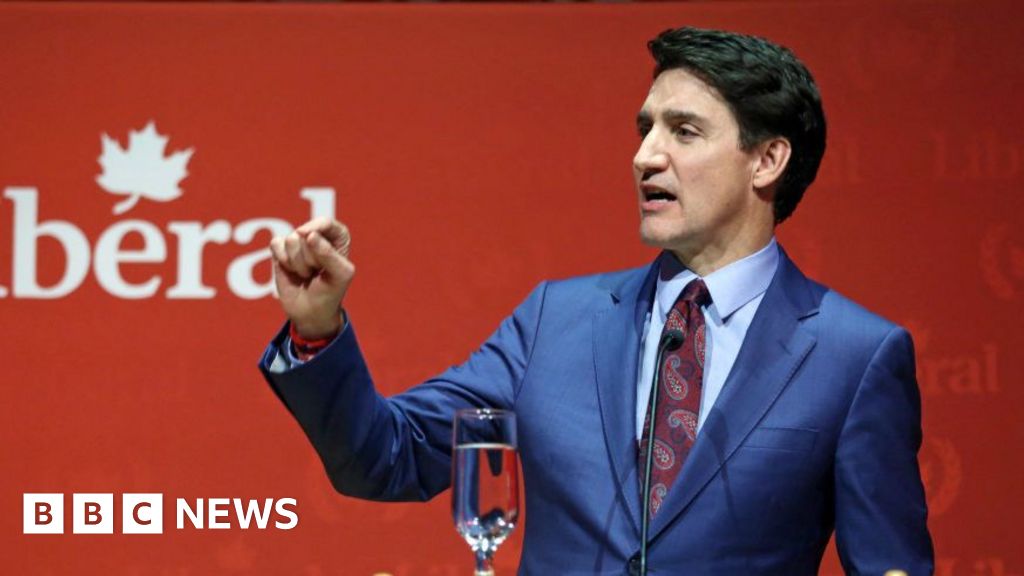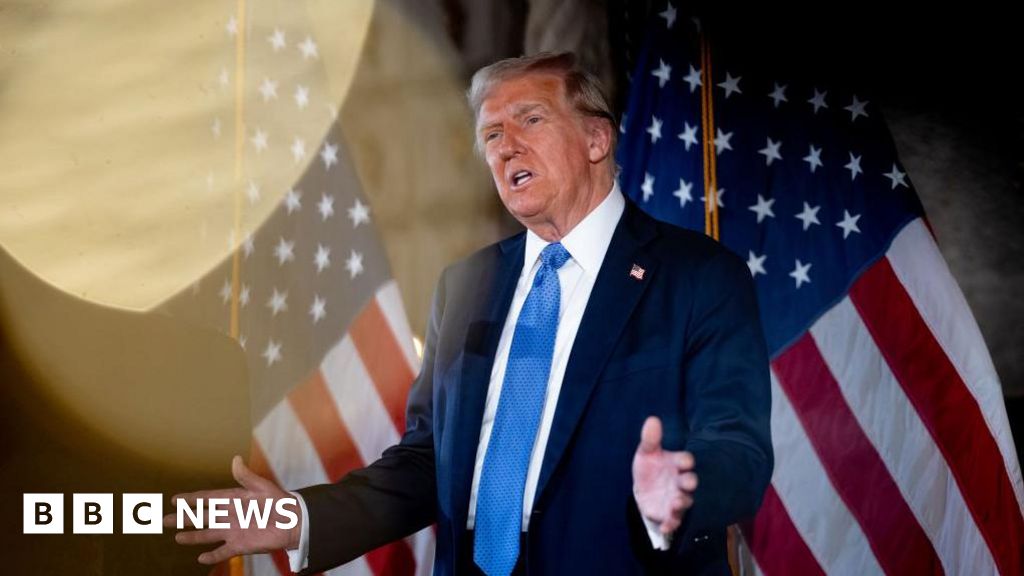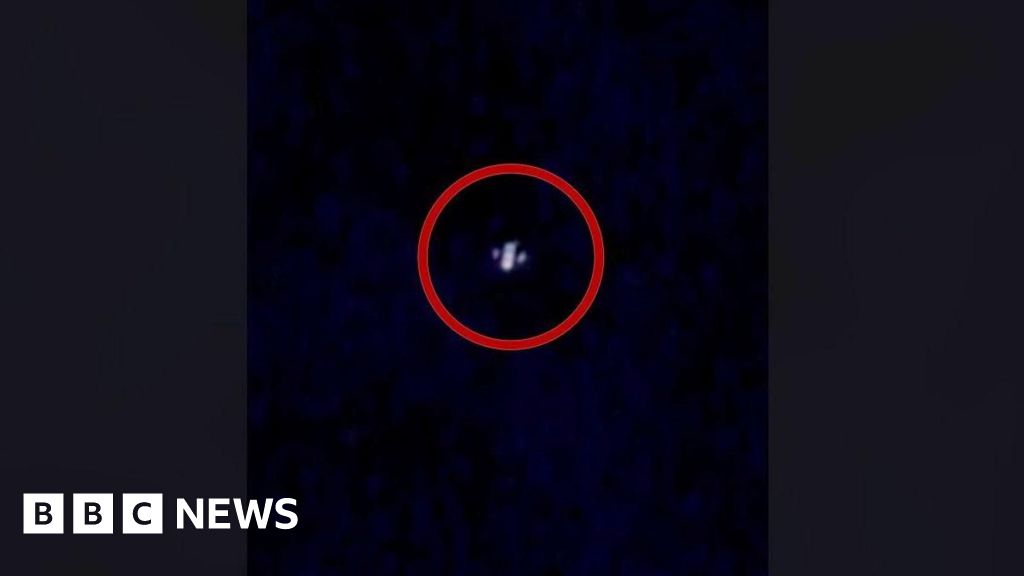ARTICLE AD BOX
By Sam Cabral
BBC News, Washington
Image source, Getty Images
Image caption,Protesters play street hockey as trucks block a street in downtown Ottawa
Twelve days after protests against vaccine mandates first took over Canada's capital, officials there can do little but wait for the demonstrators to go home.
Law enforcement has stepped up its urgency to rein in the Freedom Convoy, more aggressively issuing tickets and making arrests.
But the narrow streets of central Ottawa remain clogged with trucks and other vehicles, calling for the country's pandemic measures to be axed.
As police concede they lack the power to force an end to the protest, organisers have pledged to keep going "for as long as it takes... until Canada is a free nation again".
Frustrated locals are calling for more action to be taken against the convoy's participants. What can actually be done, however, remains unclear.
Tow the trucks away
The stand-off has created a tough choice for local towing companies.
Their heavy tow trucks, commonly known as "wreckers", can ostensibly help clear the roads, but trucker Doug Rowland says many may be reluctant to get involved for both political and practical reasons.
"A lot of towing companies consider themselves truck drivers as well," he explained.
Tow operators and truckers require the same classification of driver's licence, so there is plenty of overlap between the two industries. (Mr Rowland - who is not involved in the protests - himself operates both articulated lorries and wreckers.)
According to him, even large to mid-sized towing companies might own five wreckers at most, often at hefty price tags ranging from $300,000 (£221,000) to $1m (£738,000), so smaller companies are likely to avoid a hostile situation that could damage their expensive equipment.
Further logistical difficulties arise from the sheer number of vehicles involved in these protests.
Each truck requires its own wrecker and hooking up a wrecker to a truck takes about an hour, assuming the driver is present and co-operating.
"If the trucker is not co-operative, it probably takes an extra 15 minutes or half hour because you don't have access to the cab, the inside of the truck," said Mr Rowland.
A mechanical engineer by trade, he says such an instance could require each parking brake on the vehicle to be manually released. That means, for a lorry, the brakes need to be "caged" or manually backed off its 18 individual wheels.
The airlines to the brakes might also need to be removed if the driver is actively stepping on the brake pedal.
Mr Rowland further hypothesised that "if the driver gets in the way, say he lays down on the road in front of his truck, it becomes a standoff and the timing of that can be anywhere from 10 minutes to 10 hours".
In Alberta, the Royal Canadian Mounted Police (RCMP) indicated last week that it may tow away trucks blockading the main Highway 4 that leads to the US border.
After Canadian media reported that local heavy towers were hesitant to help them, an RCMP spokesperson confirmed to the BBC that it had not yet towed any vehicles away.
Starve the protesters of cash and fuel
Canada isn't used to protests this large, long and disruptive.
That might account for why Ottawa police apparently underestimated the degree of organisation and extent of financing behind this one, says Christian Leuprecht, a security expert at Queen's University and the Royal Military College in Ontario.
The legions of protesters that converged on downtown Parliament Hill had received support through a GoFundMe page set up by the convoy's organisers that raised more than C$10m ($7.9m; £5.8m).
On Friday, the company shut down the page, citing police reports of protest-related violence, but about $1m had already been disbursed.
Mr Leuprecht says the page's success indicates that donors from outside Canada helped fund the movement.
"There are many NGOs in this country with professional fund-raising bureaucracies that raised less money than that in a year," he said. "Intelligence is presumably trying to figure out whether people are getting paid to hunker down there."
In recent days, authorities have also sought to make protesters' lives more difficult by seizing their petrol cans and propane cylinders, and moving their staging area from nearby Confederation Park to an off-site location 5km away.
Ottawa did not take some of the proactive measures that other cities have taken to draw clear red lines and to protect access to critical services, Mr Leuprecht notes.
He says authorities are probably hoping the truckers - most of whom are thought unlikely to be salaried and earn wages per drive - will eventually pack up once they get tired and run out of money.
Call in the troops
Police have described the remaining protesters as a small but highly motivated group.
City officials have referred to them in increasingly stark language, as occupiers and insurrectionists.
It has fuelled speculation that Canadian troops could be deployed on domestic soil.
But that has only happened twice in the past century.
Last Thursday, Mr Trudeau tamped down calls for military intervention.
"One has to be very, very cautious before deploying military in situations engaging Canadians," he warned.
Negotiate a compromise
Some Canadians want desperately for police to end the protest, but Ottawa Police Chief Peter Sloly has said that the city force does not have the capacity or legislative mandate to do so.
In a letter to lawmakers on Monday, he pleaded for more help, including 1,800 officers and civilian staff.
"He's made it clear that you can criticise him as a police chief all you want, but neither the law nor his resources were ever designed for this protest," Mr Leuprecht, the security expert, told the BBC.
On Sunday, Ottawa Mayor Jim Watson declared a state of emergency in the city, one of a few legislative tools that may boost law enforcement capacity.
The police force is also now relying on reinforcements from the federal RCMP and the Ottawa Provincial Police. The OPP is the largest force in the province and it has policed occupation-type protests in the past, including on indigenous lands.
But if police deploy their additional personnel and resources as part of a heavy-handed response to end the protest, it could spark more protests and disruption by the well-organised group.
"You could enforce and try to shut down the protest, but that would be un-Canadian," said Mr Leuprecht. "When people protest, we wait it out and try to negotiate our way out of it."

 2 years ago
35
2 years ago
35








 English (US) ·
English (US) ·